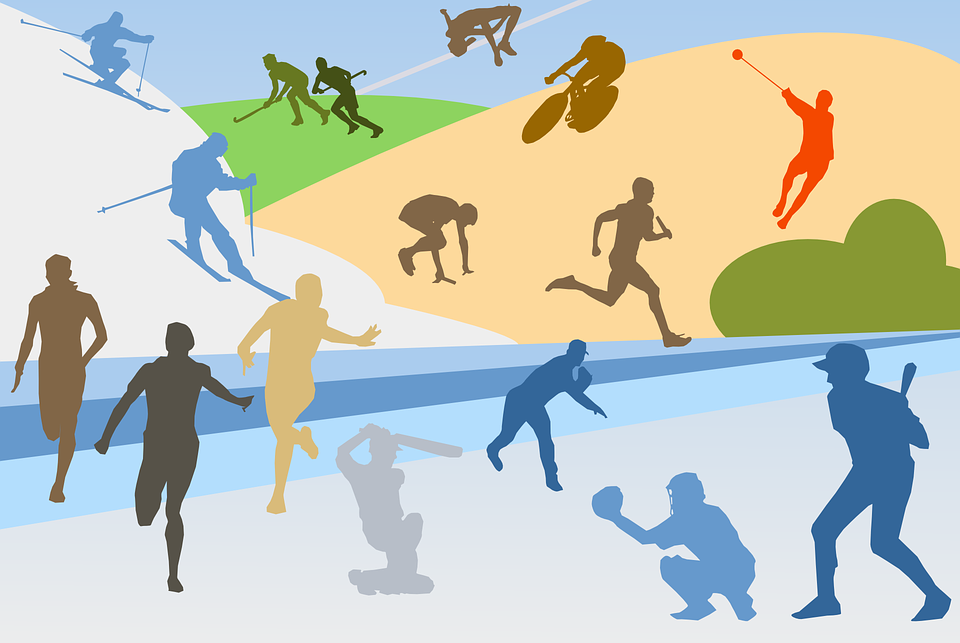This article is written by Arkadyuti Sarkar, a student of B.A. LL.B from the Shyambazar Law College under the University of Calcutta. This article analyzes the problems in the domain of Indian sports and discusses the need for a reformation in the legal scenario in the arena.
Table of Contents
Introduction
India is well known for a venue with numerous forms of games and sports. While Cricket has managed to gather followers akin to a religion, present occasions have gone through a dynamic shift as numerous different games are presently higher than before. As the form of amusement has experienced significant development, India has started organizing multiple national and international sporting events amid its time that rules and regulations are being established in the supplement. The UN has provided official acknowledgement of the sport as a method for the progression of health, education, and development. Therefore, streamlining the field of sports with a reasonable legal framework has become necessary.
Presently, unlike other subjects, sports in India lack any statutory enactment guiding it. Most of the time, due to the absence of any specific enactment, provisions of various statutes have been applied for sports-based issues and litigation. The guiding principles behind the Indian Sports have the judicial decisions of the Supreme Court and other High Courts. There have been issues and litigations relating to the broadcasting rights and arbitrary actions by the sports authorities. This scenario is attributable to the incompetent Indian courts as sports issues are inclusive of matters requiring technical expertise in this field, while the judicial officers in India are lacking in such technical know-how.
Although legislators in other nations across the globe have made significant endeavours in the development of legal frameworks relating to sports, there has been no such attempt in contributing to sports jurisprudence in India. In contrast to the USA, France, China, or Canada; the Indian sports jurisprudence is yet underdeveloped, although numerous sports authorities are present.

So if there is no enactment then how the legal issues of sports are guided?
The Ministry of Youth Affairs & Sports was established by the Indian Government for the creation of infrastructure and promotion of capacity development for broad-basing sports and also for the achievement of excellence in different national and international competitive events. Sports promotion is usually the liability of the various autonomous National Sports Federations (NSFs). The Ministry of Sports and Youth Affairs makes the issuance of notifications and guidelines time and again purporting to regulate the Sports Federations.
The Sports Law in India is governed and regulated by the followings:
National Sports Policy
A resolution on the National Sports Policy was laid before the Parliamentary Houses in August of 1984. The National Sports Policy, 1984 was created with the aim of uplifting the standard of sports in the country. It provided inter-alia that the progress made in implementing it would be reviewed every 5 years to assess and decide upon the further necessary course of action following such review. Over the years, it has been revealed that even as the policy borders various areas related to encouraging sports in the country, yet its implementation is incomplete. The National Sports Policy 2001 was drafted to reformulate the NSP, 1984.
The guidelines of the National Sports Policy 2001 has three objectives:
- Defining the liability areas of the various agencies involved in developing and the promotion of sports,
- Identifying the eligibility of National Sports Federations for coverage under these guidelines, setting priorities, and detailing the procedures to be followed by these Federations for availing Government sponsorship and assistance.
- Stating the eligibility criteria which the Government will insist upon during the release of the grants to Sports Federations.
Sports Law and Welfare Association of India
This is a national-level nonprofit and professional organization, operating with the common aim of appreciating, advancing, and ethically practising Sports Law in India for promoting Sports, by joining the legal Practitioners and the Sportspersons.
This Association provides consultation regarding various matters including –
- regulating the governing bodies which are related to sports,
- general issues relating to sports and the law,
- matters within the sports domain relating to intellectual property,
- online advocacy for legal disputes of sports on behalf of sportspersons and sports bodies, etc.
The association aims towards proceeding the discussion of legal problems affecting sports and promoting the exchange of a variety of perspectives and positions of sports law and providing a platform for the lawyers representing the followings:
- Athletes;
- Teams;
- Leagues;
- Conferences;
- Civic recreational programs;
- Educational institutions;
and other organizations involved in professional, collegiate, Olympic, physical education, and amateur sports.
Sports Authority of India
This was established to fulfill the need for an apex body in coordinating various sports activities in India and has gradually extended its operations to promote broad-based sports. The other thrust areas of SAI provide for the strengthening of inputs for excellence and various supportive programs, like-
- Academic programs,
- Coaching and Physical Education Awareness Programs and Scholarship Schemes to incentivize the sportspersons.
- Operating various Schemes at sub-junior, junior, and senior-level and attempts in broad basing sports and develop excellence by upliftment of the skills of Indian athletes.
The law relating to the broadcasting of sporting events in India
The Sports Broadcasting Signals (Mandatory Sharing with Prasar Bharati) Act was enacted and implemented in 2007, targeting to provide access to the highest number of listeners and viewers, over a free to air medium, of sporting events of national significance through mandatory sharing of sports broadcasting signals with Prasar Bharati and for related and incidental matters. This Act provides that any right owner or holder of content or television or radio broadcasting service provider shall not carry a live television broadcast on any-
- Cable, or
- Direct-to-Home network, or
- Radio commentary broadcast,
in India of sporting events possessing national significance, unless it concurrently shares the live broadcasting signal with the Prasar Bharati enabling them to re-transmit the same on its terrestrial networks and Direct-to-Home networks in accordance with specified manners or terms and conditions.
Problems marring the Sports in India
Some of the major issues which plague the sporting world can be jotted as follows :
Issues relating to labour
Players and owners have to deal with mandatory issues relating to the working hours, remunerations, and working conditions. The agents who are entrusted with the conduct of the business on behalf of the players require to work in accordance with well-codified norms serving the best interests of the game.
Torts Laws
Once the law of torts was not related to the sports domain. But deliberate tortious acts having the essence of criminality require strict penalization.
Use of Drugs
Usage of performance-enhancing drugs by the players, or doping is developing into a matter of immense concern during modern times. Many famous sports personalities from different domains of sports have been caught and penalized for doping. Thus, the provisions on the following, imperatively require clear assertion and promulgation by the concerned Nodal Agency :
- List of banned drugs;
- Penalties;
- Privacy issues; and
- Right to appeal.
- Lack of accountability laws
It is essential to keep the corruption in check and ensure accountability by the Government bodies and other agencies who are involved in sports management. Discouraging exclusionary agreements that are contrary to the Trade Practices have to be effected. Denial of indispensable essential facilities for the rivals must be dealt with severely. This has to be specially applied in our nation, where the administration of a sports organization has a pyramidal structure consisting of a dominating agency at the helm of others.
Betting & match-fixing
The Sports law is pivotally concerned with the occurrences of corrupting activities during a sporting event. Betting, gambling, and match-fixing are some of the integral corrupting ingredients. Every event, irrespective of their size, has contributed to these integral ingredients of corruption. Although in this regard, betting is acceptable to a certain extent, it ultimately gives way to match-fixings, thereby resulting in the creation of indirect profit-oriented bodies. These bodies then exercise indirect control over the sports, defeating the actual essence of the sports.
Broadcasting Issues
India’s Competition Act 2002, invalidates agreements that are likely to cause a considerable adverse effect on competitiveness. Yet the issue relating to the grant of broadcasting rights of the sporting events has repeatedly generated controversy. We need clear introspection in the matter, which has the possibility only if the rules governing the same are clearly laid down.
The approach by the Indian Judiciary
The Supreme Court’s judgment in Zee Telefilms Ltd. & Anr vs Union Of India; is being referred to as Magna Carta of Indian Sports Law. Here, the question arose due to the arbitrary termination of the broadcasting agreement by the BCCI with Zee Telefilms. Zee Telefilms, the plaintiff, filed a writ petition under Article 32 of the Indian Constitution. However, a writ under Article 32 is solely fileable against authorities which come within the purview of ‘State’ under Article 12 of the Constitution. The Apex Court, through a majority judgment, held that BCCI is not a State within the meaning of Article 12.
However, in his minority opinion, Justice Sinha opined that BCCI is a State. During his judgment, he attributed the significance of Sports in India while explicitly referring to cricket. His minority opinion discussed the imperativeness of the role played by the sports authorities across the world in varying jurisdictions. For eg: the USA, UK, Scotland, Australia, and New Zealand. This is perhaps the only ruling in India that has uttered about the significance of games with such comprehension.
Apart from the Zee Telefilms case. In 1991, in the case of K. Murugan v. Fencing Association of India, Jabalpur; the Supreme Court again discussed the significance of sports in India. The issue for consideration related to the matter of electing the Executive Council Members of the Indian Olympic Association. The Supreme Court while expressing its reluctance on adjudicating upon the issue remarked:
“This does not appear before us to be a matter where individual rights in terms of the Societal rules and regulations should make us attentive. Sports in modern times have been considered as a matter of great communal significance. International Sports has turned highly imperative and has been the centre of focus for over a few decades. In some of the recent Olympic games, the performance of small States has been excellent and laudable whereas India’s performance comprising of the world’s second-largest population has been miserable.”
Remedies to Sportsmen
Let us now introspect and examine the remedies available to Sports Persons if they are disputing with the sports authority. Every Sports Authority consists of its own dispute resolution mechanism for dealing with disputes. On the occurrence of a dispute, between the Sports Authority and the sportspersons, the sports authority would, of course, be a disputing party as well as the adjudicator.
Issues
- The international body to which these authorities owe their allegiance also a significant role to play in the result. Therefore, it is never an ideal adjudication process when the disputes are being dealt with by the disputing party itself.
- An athlete lives in a world where one mistaken word or act often may result in the immediate end of his athletic career. Thus, An athlete is always situated in a vulnerable position in relation to Sports authorities.
The second option left for an aggrieved athlete is approaching the Judiciary, which by all means will supplement the agony of the athlete, without providing any sort of relief. There are various issues associated with the Indian judiciary.
- The delay in disposing of the cases. As the opportunities for Sportsmen in their careers are abundant and temporary, it is wiser for them to abstain from approaching the judiciary.
- The judges are not well equipped with intricate details relating to the particular sports.
- There are very few advocates with a dedicated practice in Sports law.
Further, it is also notable that all the Sports authorities in India, affiliated with the Indian Olympic Association, possess a much complex and unreasonable mode of dispute resolution. It is notable that the Indian Olympic Association holds a precondition for affiliating with it, that is the respective National Sports Federation/ Association/ State Olympic Associations would have to surrender the right of redressal with any judicial authority. All the disputes involving these Sports authorities would be submitted before the Indian Olympic Association which would suggest an arbitration panel from the Indian Olympic Association for resolving the disputes. This practice marches against the fundamental principles of Natural Justice Nemo Judex in Causa Sua, due to its failure in providing for an adjudicatory mechanism.
In case of a Sportsperson landing in a dispute with the Indian Olympic Association or any Sports federation affiliated with it, the adjudicators of the dispute would be his adversaries.
- Forfeiture of the right of resorting to the Court for civil disputes
- The adjudicator is the same as the disputant.
Such is the agony of an athlete who is a member of the Association or of a Sports federation affiliated to the Indian Olympic Association. The third option for the Sportsmen is resorting to private Arbitration or submit the dispute to Dispute resolution bodies like International Cricket Council, FICCI, etc. These institutions have an arbitration panel from whom the arbitrator or moderator is selected for appointment. Although it provides a reasonable degree of flexibility regarding the selection of arbitrators, it is rarely possible to select an arbitrator having specialized knowledge in the Sporting Arena. A formal Sports Dispute Resolution body overtakes the advantage of any other sorts of Alternative Dispute resolution bodies like ICC or FICCI. This demonstrates the immediate need for establishing a standardized Sports Dispute Resolution Body.
Conclusion
The legislative intervention is a must for the flourishing of sports law in India, so as to flourish sports and the athletes. It is necessary for the nation to comprehend that sports are no more a battle among athletes competing for the top ranks, but also involve complicated legal matters along with a huge stake in the career of a sportsperson. There is an emergence of a distinct legal domain from this sports arena which requires adequate and urgent attention. Therefore, Sports law should also be included in the syllabus of the law students. Sport at present is not solely restricted to recreation but also possesses national significance. The advent of the Indian Premier League and Indian Cricket League has raised very important issues in relation to the Competition Law in contemporary times, thereby adequately demonstrating the need for the improvement of Sports Law in India.
References
- https://www.mondaq.com/india/sport/769938/sports-law-in-india
- https://iasscore.in/national-issues/need-for-sports-law-in-india
LawSikho has created a telegram group for exchanging legal knowledge, referrals and various opportunities. You can click on this link and join:
 Serato DJ Crack 2025Serato DJ PRO Crack
Serato DJ Crack 2025Serato DJ PRO Crack










 Allow notifications
Allow notifications


